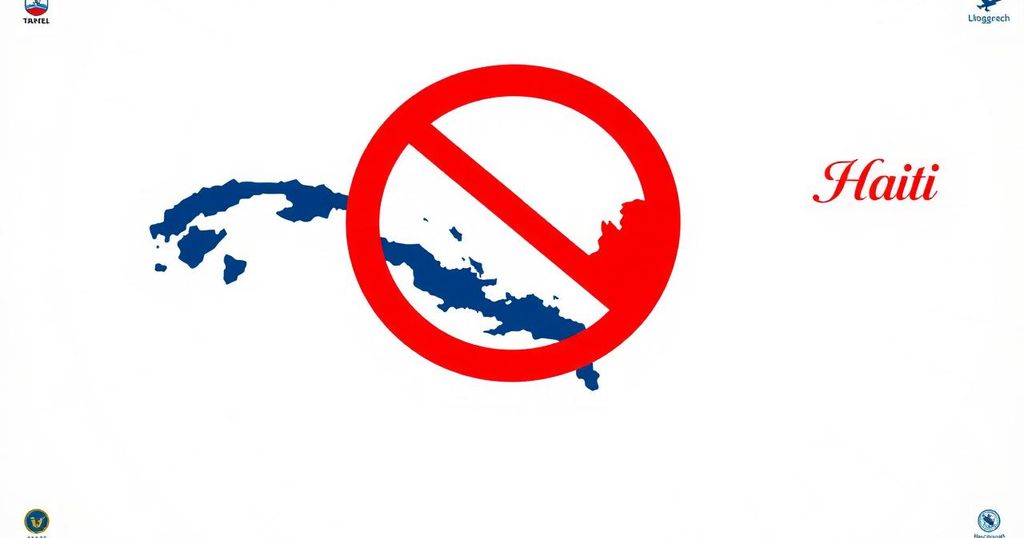The Trump administration is deliberating a potential travel ban affecting Cuban and Haitian nationals due to security concerns. Cuba may face a total ban, while Haiti might encounter less severe restrictions. Preparations for possible returns to the U.S. are advised for individuals in these countries. The move aims to address inadequacies in security vetting, consistent with past travel bans under the administration.
The Trump administration is contemplating a travel ban that could include nationals from Cuba and Haiti, potentially due to security concerns regarding these nations. Cuba is being considered for a full travel ban as it appears on the State Department’s list of terrorism-sponsoring countries, while Haiti may face less stringent restrictions, according to sources familiar with the discussions.
Since President Trump took office, his administration has been intent on expanding travel restrictions following a previous executive order targeting Muslim-majority countries, which stemmed from issues surrounding security background checks. Universities and organizations have informed their respective communities to prepare for possible returns to the United States given the potential implications of the new ban.
The initial travel ban during Trump’s first term was extended to include several countries due to inadequate information for verifying the security risks posed by their nationals. These included nations like North Korea and Venezuela, with Cuba notably exempt from the previous ban. The policy under consideration is rooted in an executive order mandating a review of countries posing significant vetting challenges.
Responses to inquiries about this potential travel ban have confirmed that the administration is committed to ensuring travelers do not compromise U.S. national security. The State Department acknowledged ongoing evaluations of visa programs to align with administration priorities. Reports indicate that Afghanistan and Pakistan may also be added to the proposed list of restricted nations.
The American Association of University Professors has urged members in these at-risk countries to return to the U.S. swiftly, highlighting the potential complications of re-entry for U.S. citizens from affected nations. Historically, the travel ban has suspended various visa types, with different degrees of restrictions imposed on various countries.
Cuban nationals have faced significant challenges with U.S. visas, particularly since the embassy in Havana ceased issuing non-immigrant visas except for limited cases. Additionally, the Biden administration has initiated a family reunification program to facilitate legal Cuban emigration. Meanwhile, Trump’s approach has involved reinstating Cuba on the terrorism list and reintroducing sanctions aimed at Cuban entities.
Potential restrictions against Haitians could arise from the country’s ongoing issues with criminal gangs, which hinder facilitation of visas. The U.S. Embassy in Port-au-Prince has been beset by challenges since the COVID-19 pandemic, affecting the ability to process visa applications, and has seen an increase in scrutiny of Haitian nationals seeking U.S. entry.
The U.S. plays a vital role in addressing gang violence in Haiti, providing support to multinational missions aimed at stabilizing the country. Despite its strategic involvement, the situation remains dire, with many U.S. citizens engaged in humanitarian efforts amidst escalating gang control and a freeze on foreign aid from the Trump administration.
The Trump administration is actively considering a travel ban impacting nationals from Cuba and Haiti, primarily for security reasons. The potential travel restrictions reflect ongoing concerns about inadequate background checks for citizens of these nations. Reports suggest this move may also affect additional countries, making it crucial for those in potentially targeted areas to prepare for quick returns to the U.S. The implications of these proposed restrictions underscore the complexities surrounding immigration policy and national security in relation to the Trump administration’s broader objectives.
Original Source: www.miamiherald.com




